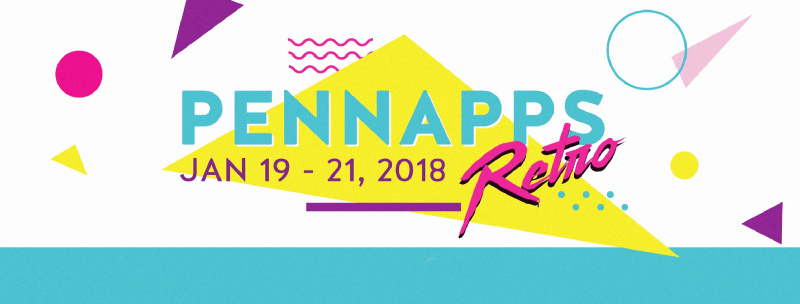
Object-Seeking Robot Wins PennApps XVII
By Lida Tunesi
An object-seeking robot took home the grand prize at PennApps XVII, beating more than 150 tech projects developed over the course of a weekend.
Hackathon contestants arrive on a Friday afternoon, form teams and come up with ideas for digital apps or hardware hacks, which they must complete before a demo session on Sunday morning. There, the projects are evaluated by a panel of tech industry judges, who rate them on originality, technical difficulty, polish, and usefulness. Almost $25,000 in prizes were at stake.

A project known as CloudChaser took home the gold.

CloudChaser is a robot that can recognize objects and follow commands to seek them out. Using an onboard Amazon Echo Dot, users ask Alexa for the object they wish to be found; the robot then scans the environment for that object and rolls to it once it’s identified. The image analysis, a computationally intensive process, is done in the cloud, which means that the software that powers CloudChaser can run on any device that is able to connect to Wi-Fi
In second place was ModWare, a hardware development kit designed for software engineers. Physical modules, such as knobs or sliders, are placed on a magnetized board and can be controlled from a visual interface. The modules can also be programmed to control different functions in the software.
In third place was ScavengAR, a mobile game that lets friends compete in a scavenger hunt through augmented reality on their phones. One player hides a virtual penguin in the room and the other players sort through visual distractions to find the penguin first.
The other finalists were:
Hand-motion Controlled Car, a remote-control car that moves according to the motion of a special pair of gloves worn by the driver.
Gradian, a mobile and web app that facilitates better communication between professors and students during lectures.
FunkBud, a music player that lets users join in and control the instruments.
DEREZ, an app that allows users to design an augmented reality racetrack for their remote-control car, and zoom through from the car’s perspective via an Oculus headset.
Beat, an app that lets friends put their DJ skills to the test, competing to choose songs that best match up with the song currently playing.
Lochness, an interface that judges whether website users are bots or humans by tracking their mouse movements and activities.
Running into the 90s, in keeping with the Hackathon’s “retro” theme, a game in which playing different chords on a keyboard correspond to the character’s motions.
Zeppelin, a travel app that reports the carbon footprint of your flight or drive and suggests a corresponding donation to a carbon offset organization.
